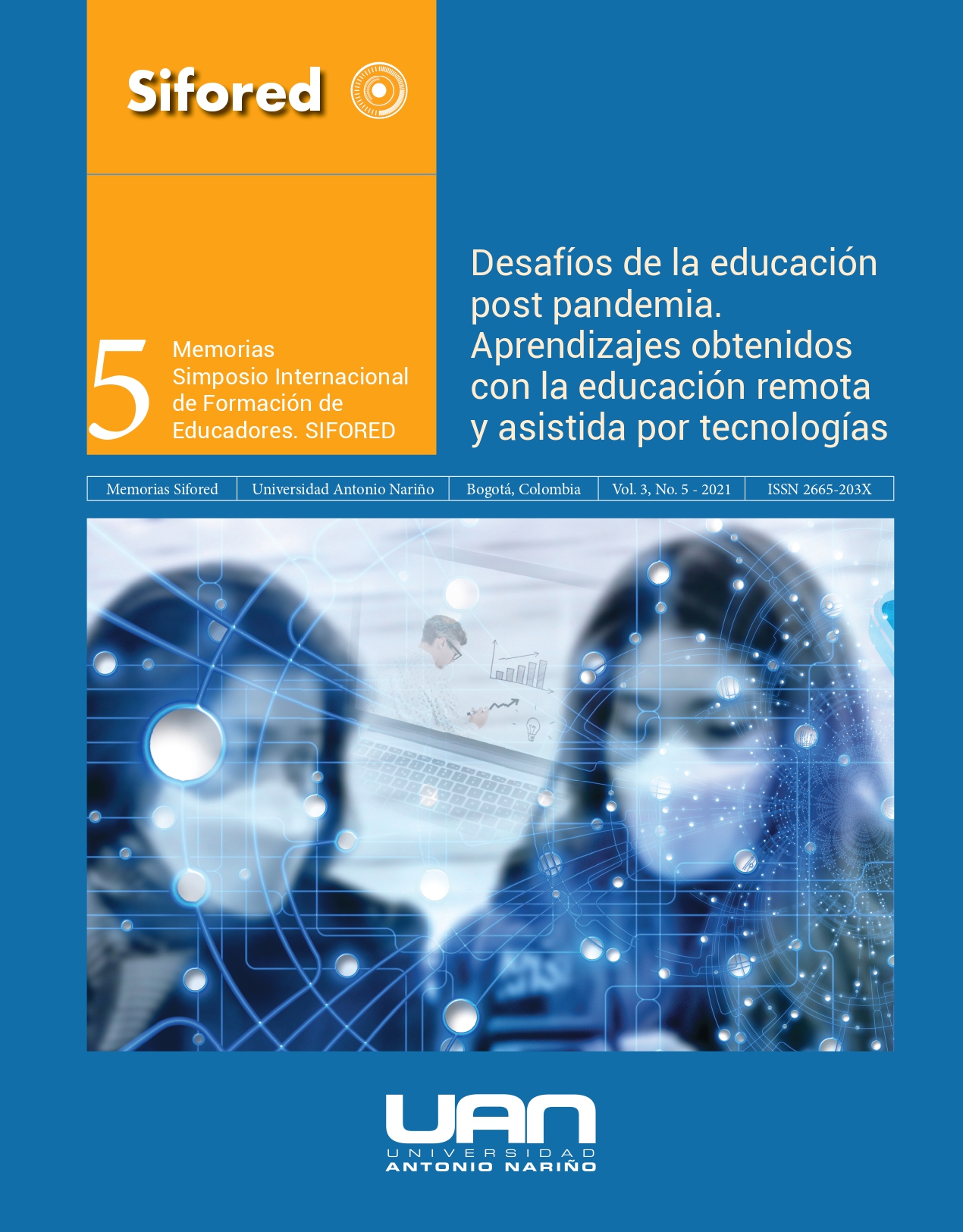Pedagogical content knowledge desde el modelo de consenso refinado: revisión sistemática de la literatura
Palabras clave:
bases de datos, metodología, revisión sistemática, análisis metodológico, enfoques investigativosResumen
Este trabajo presenta una revisión sistemática sobre los procedimientos metodológicos abordados en la investigación del pedagogical content knowledge (PCK) desde el modelo en consenso refinado (RCM) para conocer las tendencias de los investigadores que han adoptado el RCM al entender la necesidad de crear una taxonomía del PCK unificada y simplificada de sus componentes a través de la discusión académica para guiar nuevas investigaciones. Para esta revisión se estableció como bases de datos a Google Scholar, Scopus, ERIC y Web Science, donde se recopilaron doce artículos de investigación y dos disertaciones doctorales en el periodo de 2019 y 2021 que usaban el modelo como marco teórico en el diseño de su investigación. De dicha muestra se analizaron aspectos metodológicos como la población estudiada, áreas de conocimiento, los niveles, componentes y tipos de PCK; enfoque de investigación e instrumentos usados para la aproximación del conocimiento pedagógico del contenido. El análisis de estos aspectos permitió vislumbrar una escasa muestra recolectada en artículos que usan el modelo de consenso refinado del PCK llevando a considerar que existe un desconocimiento por su reciente aparición para el campo investigativo en educación como también pone en evidencia la ausencia en el abordaje del PCK en docentes la biología y matemáticas, dichas consideraciones pueden guiar nuevas investigaciones bajo este marco referencial.
Descargas
Citas
Azam, S. (2020). Locating Personal Pedagogical Content Knowledge of Science Teachers within Stories of Teaching Force and Motion. Eurasia Journal of Mathematics, Science and Technology Education, 16(12), 1–20. https://doi.org/10.29333/ejmste/8941
Buldu, E., & Buldu, M. (2021). Investigating Pre-Service Early Childhood Teachers’ cPCK and pPCK on the Knowledge Used in Scientific Process Through CoRe. SAGE Open, 11(2). https://doi.org/10.1177/21582440211025564
Carlson, J., Daehler, K. R., Alonzo, A. C., Barendsen, E., Berry, A., Borowski, A., ... & Wilson, C. D. (2019). The refined consensus model of pedagogical content knowledge in science education. In Repositioning pedagogical content knowledge in teachers’ knowledge for teaching science (pp. 77-94). Springer, Singapore.
Carvalho Gastaldo, B., Castro, P. M., Homem-De-Mello, P., & Leal, S. H. (2017). five years of pck summit, what has endured: 1. a descending hierarchical classification of the science pck published papers.
Coetzee, C., Rollnick, M., & Gaigher, E. (2020). Teaching Electromagnetism for the First Time: a Case Study of Pre-service Science Teachers’ Enacted Pedagogical Content Knowledge. Research in Science Education. https://doi.org/10.1007/s11165-020-09948-4
Fernandez, C. (2015). revisitando a base de conhecimentos e o conhecimento pedagógico do conteúdo (pck) de professores de ciências. Ensaio Pesquisa Em Educação Em Ciências (Belo Horizonte), 17(2), 500–528. https://doi.org/10.1590/1983-21172015170211
Kim, J. (2020). Connecting pedagogical content knowledge (pck) to teaching practice: investigating physics teachers’ enacted pck, personal pck, and engagement with student ideas in classroom discussions.
Kulgemeyer, C., Borowski, A., Buschhüter, D., Enkrott, P., Kempin, M., Reinhold, P., Riese, J., Schecker, H., Schröder, J., & Vogelsang, C. (2020). Professional knowledge affects action-related skills: The development of preservice physics teachers’ explaining skills during a field experience. Journal of Research in Science Teaching, 57(10), 1554–1582. https://doi.org/10.1002/tea.21632
Lima, S. S., Darsie, M. M. P., & Mello, G. J. (2020). Análise comparativa dos modelos usados como ferramenta metodológica nas pesquisas sobre o Conhecimento Pedagógico de Conteúdo (PCK) de professores de Física no Brasil. Caderno Brasileiro de Ensino de Física, 37(1), 79–104. https://doi.org/10.5007/2175-7941.2020v37n1p79
Magnusson, S. J., Borko, H., & Krajcik, J. S. (1999). Nature, sources, and development of pedagogical content knowledge for science teaching. In J. Gess-Newsome & N. Lederman (Eds.), Examining Pedagogical content Knowledge (pp. 95-132). Boston, MA: Kluwer Press.
Makhechane, M., & Mavhunga, E. (2021). Developing Topic-specific PCK in Chemical Equilibrium in a Chemistry PGCE Class: Feasible Or Not? African Journal of Research in Mathematics, Science and Technology Education. https://doi.org/10.1080/18117295.2021.1925486
Maryati, Prasetyo, Z. K., Wilujeng, I., & Sumintono, B. (2019). Measuring teachers’ pedagogical content knowledge using many-facet rasch model. Cakrawala Pendidikan, 38(3), 452–464. https://doi.org/10.21831/cp.v38i3.26598
Mavhunga, E. (2020). Revealing the Structural Complexity of Component Interactions of Topic-Specific PCK when Planning to Teach. Research in Science Education, 50(3), 965–986. https://doi.org/10.1007/s11165-018-9719-6
Mavhunga, E., & van der Merwe, D. (2020). Bridging Science Education’s Theory–Practice Divide: A Perspective from Teacher Education Through Topic-Specific PCK. African Journal of Research in Mathematics, Science and Technology Education, 24(1), 65–80. https://doi.org/10.1080/18117295.2020.1716496
Mazibe, E. N., Coetzee, C., & Gaigher, E. (2020). A comparison between reported and enacted pedagogical content knowledge (PCK) about graphs of motion.
Miheso, J. M. (2021). operationalizing the grand pck rubric: a case of developing a classroom rubric for portraying etspck in chemistry. https://www.researchgate.net/publication/351747697
Neumann, K., Kind, V., & Harms, U. (2019). Probing the amalgam: the relationship between science teachers’ content, pedagogical and pedagogical content knowledge. International Journal of Science Education, 41(7), 847–861. https://doi.org/10.1080/09500693.2018.1497217
Park, S., Jang, J. Y., Chen, Y. C., & Jung, J. (2010). Is Pedagogical Content Knowledge (PCK) Necessary for Reformed Science Teaching?: Evidence from an Empirical Study. Research in Science Education, 41(2), 245–260. https://doi.org/10.1007/s11165-009-9163-8
Park, S., & Oliver, J. S. (2008). Revisiting the conceptualisation of pedagogical content knowledge (PCK): PCK as a conceptual tool to understand teachers as professionals. Research in Science Education, 38(3), 261–284. https://doi.org/10.1007/s11165-007-9049-6
Sæleset, J., & Friedrichsen, P. (2021). Pre-service Science Teachers’ Pedagogical Content Knowledge Integration of Students’ Understanding in Science and Instructional Strategies. Eurasia Journal of Mathematics, Science and Technology Education, 17(5), 1–18. https://doi.org/10.29333/ejmste/10859
Rollnick, M., Bennett, J., Rhemtula, M., Dharsey, N., & Ndlovu, T. (2008). The place of subject matter knowledge in pedagogical content knowledge: A case study of South African teachers teaching the amount of substance and chemical equilibrium. International journal of science education, 30(10), 1365-1387.
Shulman, L. S. (1986). Those Who Understand: Knowledge Growth in Teaching. Educational Researcher, 15(2), 4 14. https://doi.org/10.3102/0013189X015002004
Vergara Díaz, C., & Mardones, H. C. (2014). Conocimiento Pedagógico del Contenido: ¿el paradigma perdido en la formación inicial y continua de profesores en Chile? In Estudios Pedagógicos: Vol. XL.
Descargas
Publicado
-
Resumen587
-
PDF700
Cómo citar
Número
Sección
Licencia

Esta obra está bajo una licencia internacional Creative Commons Atribución-NoComercial-CompartirIgual 4.0.


 Portal de Ciencia Abierta
Portal de Ciencia Abierta